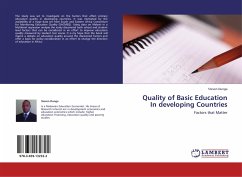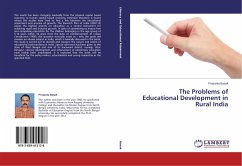Economists and policy makers around the world believe that education promotes economic growth and reduces the poverty. Investment in education helps to increase individual productivity that provide better earnings, and reduces the inequality in the society. Many governments in developing countries realized the importance of education and implemented new policy initiatives to improve education. Many developing countries introduced free education policies, school expansion programs, and conditional cash transfer programs to increase the quantity of education. Although these new policies help to achieve significant progress in education, many children in developing countries are still not enrolling in schools or receiving a low-quality education. Furthermore, gender disparity in education is another concern in many developing countries. This study assess both quantity and quality aspect of education policy in developing countries using two case studies in Uganda and Sri Lanka.







